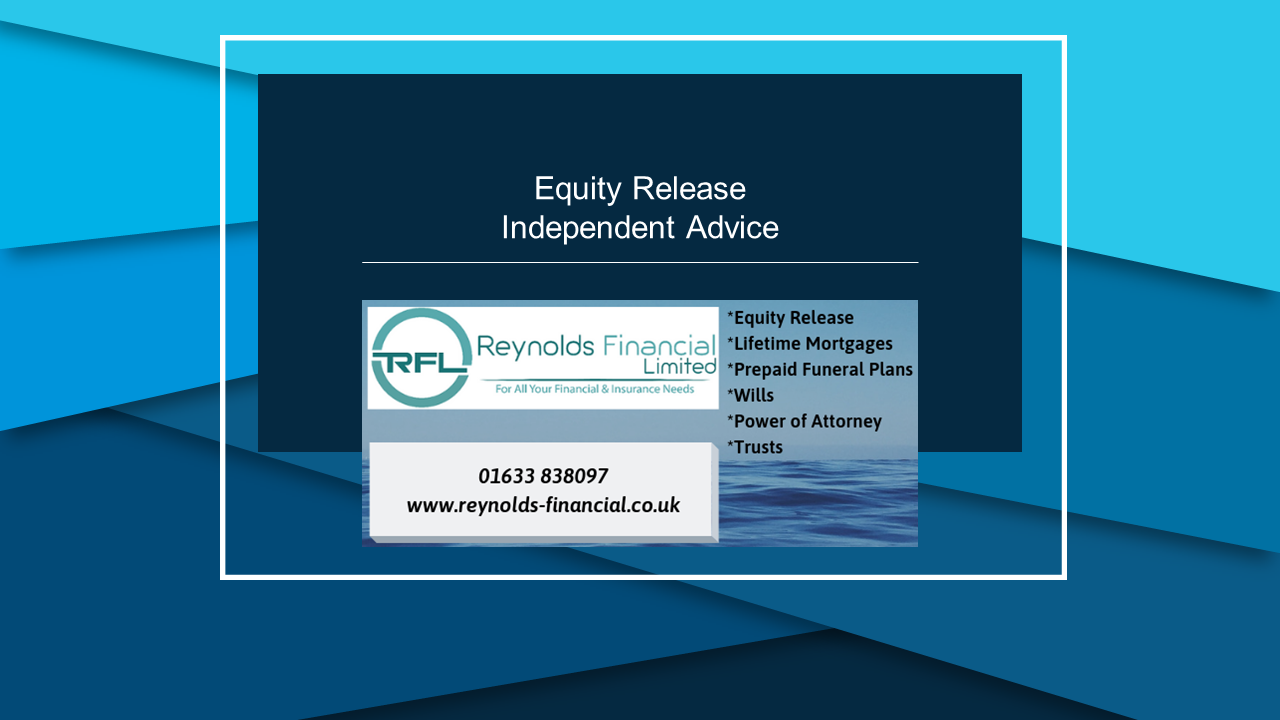Equity Release Independent Advice
Equity release is a product that allows homeowners over the age of 55 to access the equity within the value of their property. It is becoming more and more popular as it doesn’t have any affordability checks, rather the lump sum plus interest is paid upon death or long term care. This is why equity release independent advice is crucial and recommended.
Industry body, the Equity Release Council, says, “For anyone considering taking out an equity release plan, there are a number of things to consider. First and foremost it is important that you speak with a qualified adviser who belongs to the Equity Release Council. They will be able to provide you with professional guidance and will ensure that you are able to consider all your options.”
Reynolds Financial is a member of the Equity Release Council and you can check our membership credentials here –
https://www.equityreleasecouncil.com/company/reynolds-financial/

Why Independent Advice?
Nowadays Equity Release Lifetime Mortgages are becoming more and more attractive to homeowners due to the number of features and benefits built in to the plans. The reason for accessing the funds can be for any legal reason such as gifting early inheritance, new home improvements, topping up your pension along. Added to the features now offered by the lenders such as drawdown options, payment options, fixed rate options, different early repayment options and downsizing protection it is vital a qualified independent adviser talks you through these.
Equity release consists of Home Reversion Schemes or Lifetime Mortgages. Home Reversion Schemes involve selling all or part of your home for a specific amount of money. These make up less than 1% of the Equity Release Industry. The more used option is a Lifetime Mortgage which acts in the same way as a residential mortgage and sits as a first charge against your property. There is no “term” to the mortgage and the capital plus interest is paid upon death or long term care. If a joint application then this applies to the second applicant.
During your Equity Release Independent Advice another area that would be discussed is the roll up effect of the interest. If you take a look at our Equity Release Compound Interest Calculator you can look at different interest rates and terms to see how the roll up effect works. The example on the page shows that at an interest rate of 3.5% it would take circa 20 years for the initial amount to double.
5 Tips To Consider
- Discuss plans with your family. One area we look at is alternatives to equity release. If your family are able to help out in the short term this may be an area to pursue. Its also good practice to involve your beneficiaries (normally children) in the conversation so that they are aware of your plans.
- Research. The Equity Release Council has a whole host of information for consumers on its website and this can give you a good understanding of what is involved.
- If you are releasing funds for home improvements check with the local authority to see if there are any grants available for the work you have planned.
- Benefits. Make sure you are already claiming the benefits you are entitled. This could consist of a pension guarantee or credit, universal credit or even a reduction in your council tax. As part of our process we look at this for you and provide you with a benefits report.
- Lump-sum or Drawdown. Consider what funds you would require immediately and what you would require in the future. There’s very little point in taking out a lump sum if it’s just going to sit in the bank earning next to nothing. If you’re in receipt of benefits this may even impact your right to them. A drawdown is more often than not advisable in this situation. Plus interest is only charged on the amounts you take.
Equity Release Independent Advice – Conclusion
Hopefully you will see the importance of independent equity release advice. If you would like any further information or a personalised quote please feel free to contact us on 01633 838097 or complete our contact us form



